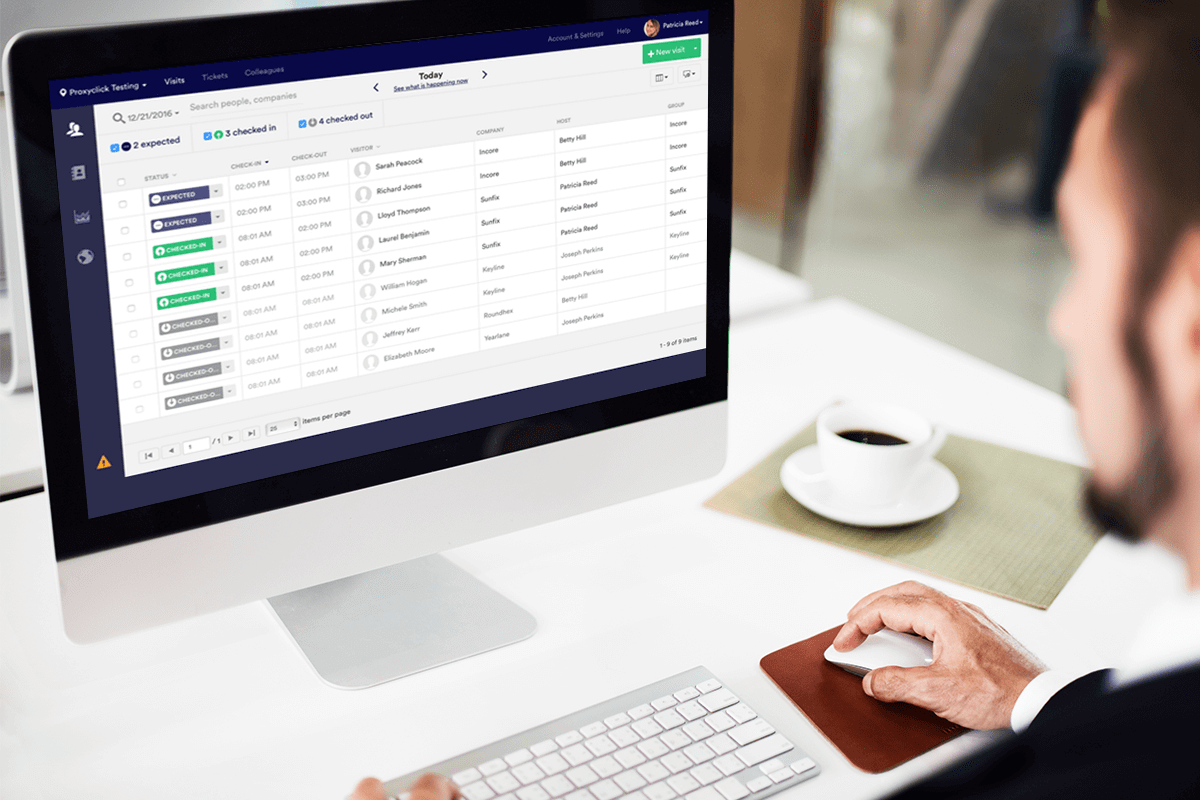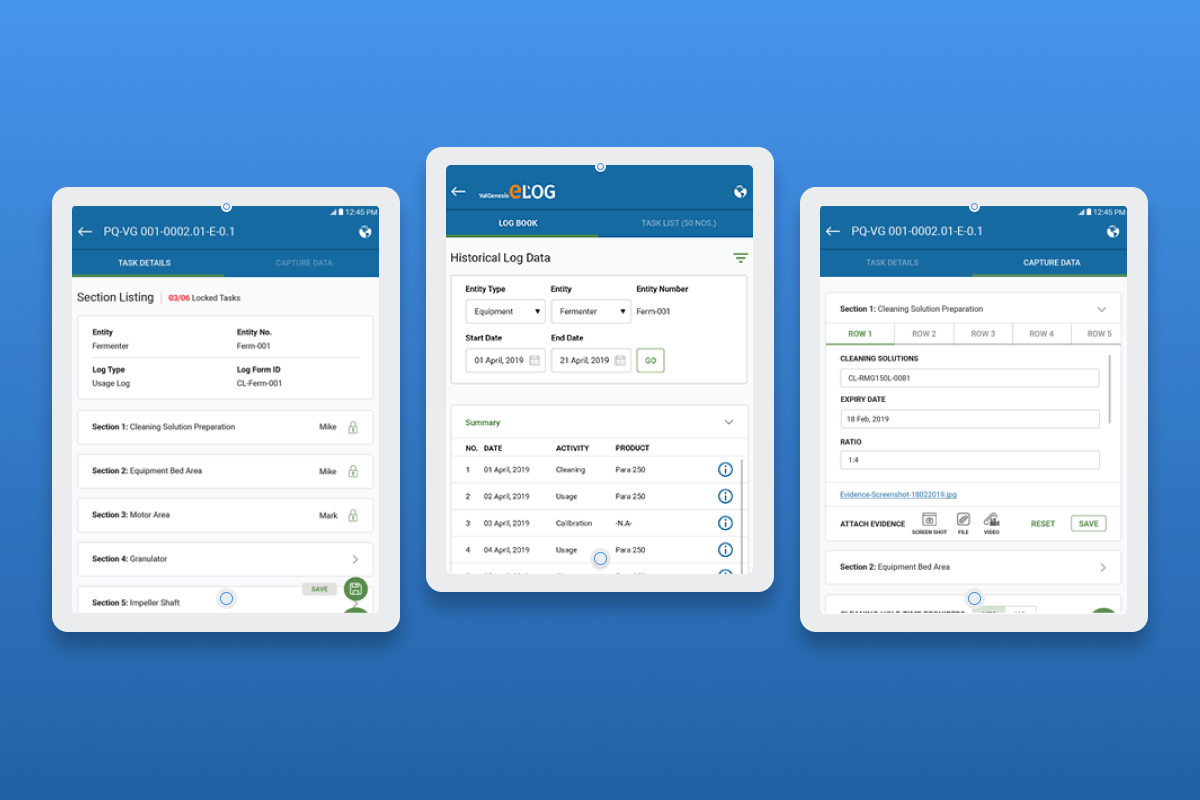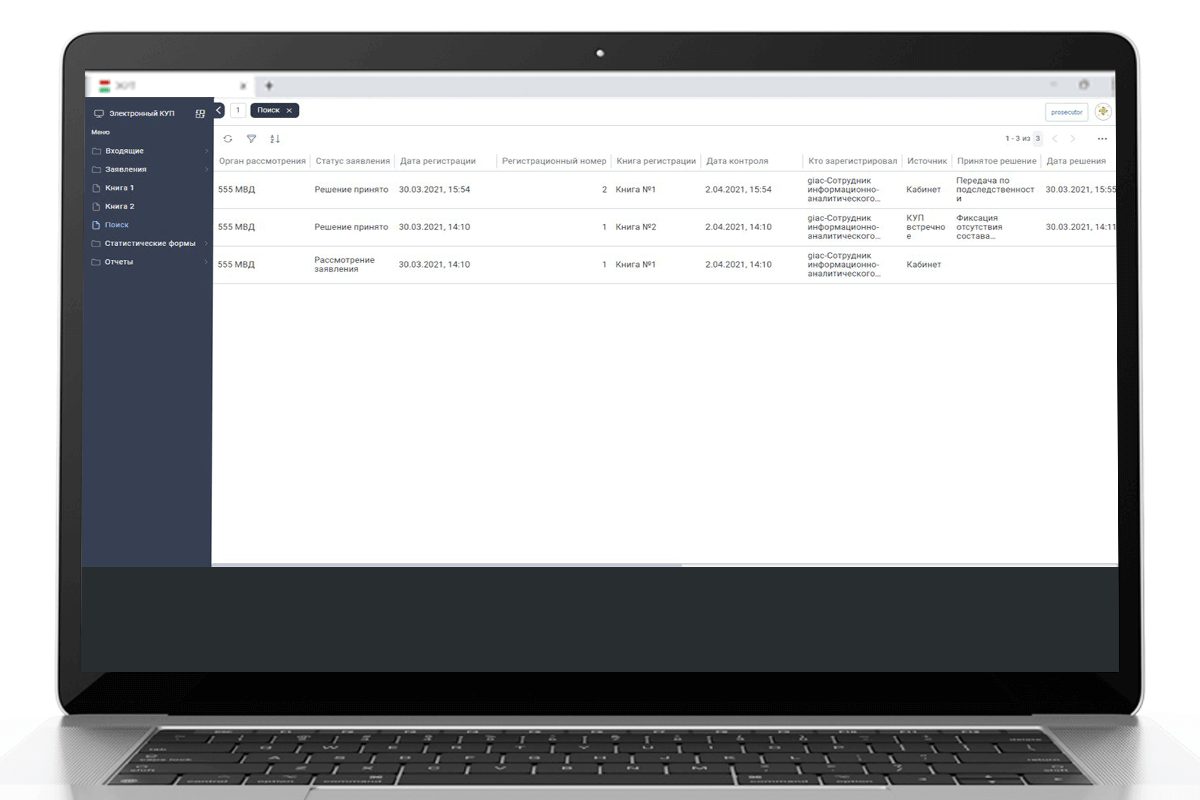Gradually, electronic document management replaces paper across various industries and geographies. One of the recent examples is abolishing paper income accounting books for entrepreneurs by the Ministry of Finance of Ukraine Order 26.11.2020 № 728. But why are e-logs common? Let’s find out.
- Why Do You Need an Electronic Logbook?
- Business Process Automation with Electronic Logbook Systems
- Public Sector: Crime Recording and Processing
Why Do You Need an Electronic Logbook?
Electronic logbooks are used in various spheres, yet, the financial sector, healthcare, public sector, and retail are leaders in their implementation. There are a couple of reasons why electronic logbooks got more and more common in businesses and governmental institutions.
It is necessary to ensure end-to-end registration to keep records of all events in the field. The information within such diaries should be unchangeable once recorded. Therefore, all entries must go one after another, and the substitution of sheets has to be impossible. Such diaries are registered and sealed with the enterprise or state seal.

If no one controls these diaries, then blank lines and fields may appear in them sooner or later. Most often, some notes are written with a pencil instead of a pen. What for? It’s a straightforward way to enter the correct value later.
Let’s say a warehouse receives a certain amount of goods. Employees should record the quantity in the diary. They do it with a pencil. If some goods are lost or stolen, employees can alter the recordings. Then, a lower value will be written in the diary using a pen instead of a pencil.
The same can happen with other businesses and public institutions. The purpose of these scams is to write off the costs of work that was not performed. Even emergency services can allegedly extinguish forest fires and make a record of it. This record can be fake and describe a non-existent departure. In reality, there was no fire!
Now let’s imagine that we have a digital logbook instead of a paper diary. All records are pass-through, and their accidental deletion is not possible. In addition, everyone at headquarters can see all records. How can you defraud such a system? There is no way. No malicious actor can substitute any data, especially locally in the field. As a rule, all actions of all users are logged. Even an attempt to change something will be noticed and investigated accordingly.
Business Process Automation with Electronic Logbook Systems
How does an electronic logbook system work?
- Employees access their organization’s web portal via the Internet;
- They enter the necessary information. Each entry is unique and contains metadata values such as the time of the entry;
- Employees who need this information receive it immediately;
- The supervisor monitors all the activity of his department online. If necessary, they can set a task in the same software system. Alignment with Agile!
The most valuable thing is a dashboard that aggregates all the information for a given period and displays it in different forms, such as line graphs and pie charts. If a user hovers the cursor over the chart, a pop-up box will appear and display more detailed information. For example, how many calls were received or how many tasks were completed by each employee. In fact, you can get a report on the entire department at a glance.

How to choose electronic logbook software? There are two main options: SaaS applications and custom software solutions. In general, individual users or small business owners may find electronic logbook apps convenient. After all, such apps are pre-configured and ready-to-use. However, organizations require improved security, compliance, and other features to reflect their unique needs. That’s why it may be a good idea to create a custom logbook solution for your company.
Find out more about custom web portals and how they improve communication between multiple offices in our case study.
Public Sector: Crime Recording and Processing
Crime registration is another process that electronic logbooks and web portals can improve. Let’s look at an example of the crime report handling process for a police station and how e-logbooks make it easier.
Initially, a police desk officer receives a call regarding a possible crime. The officer has to register the call, specifying the event’s cause, place, time, and other important details. Afterward, the information is sent to a supervisor who decides whether an investigation should be started. In case of a positive decision, an investigator is appointed to process the case.
For example, a robbery call came in. The system registers a ‘robbery’ event and assigns it to an investigator. The investigator confirms that a robbery took place. The investigator reports to their supervisor, who decides whether to initiate a criminal case and appoint an investigator. It may be the same investigator or another one.
The investigation checks if a criminal group involved in other cases can be responsible. If this information is confirmed, the case can be transferred to investigators already working on the group.

All information and documents are collected and stored within the e-log system. Fingerprints and an Automated Fingerprint Identification System (AFIS) number are also entered there. If certain people or cars are involved in the incident, they will be marked as wanted, and the ‘warning’ tag will appear across all other cases.
If the investigation is successful, a note with the results will appear within the system. A stolen item found and returned to the victim will be recorded as “returned.” With all information recorded, a criminal case may be considered closed.
To sum up, all the information is collected and stored on a web portal. Police officers can access it online at any time. For a more specific example of a record management system, here’s a case of one of our Clients.
The advantages of electronic reporting over paper copies are obvious. Automation decreases processing time and reduces the probability of human errors. Moreover, unified databases ensure that the interconnection between many cases can be located quickly and reliably. With paper logs, the whole process would take an enormous amount of time and may fail due to human error or malicious intent.







